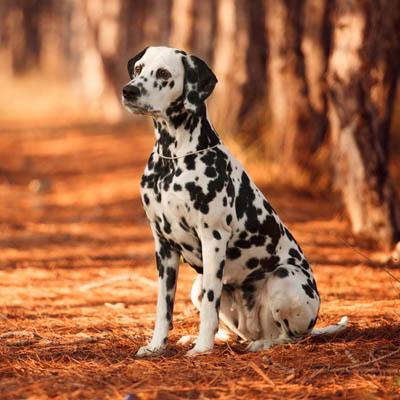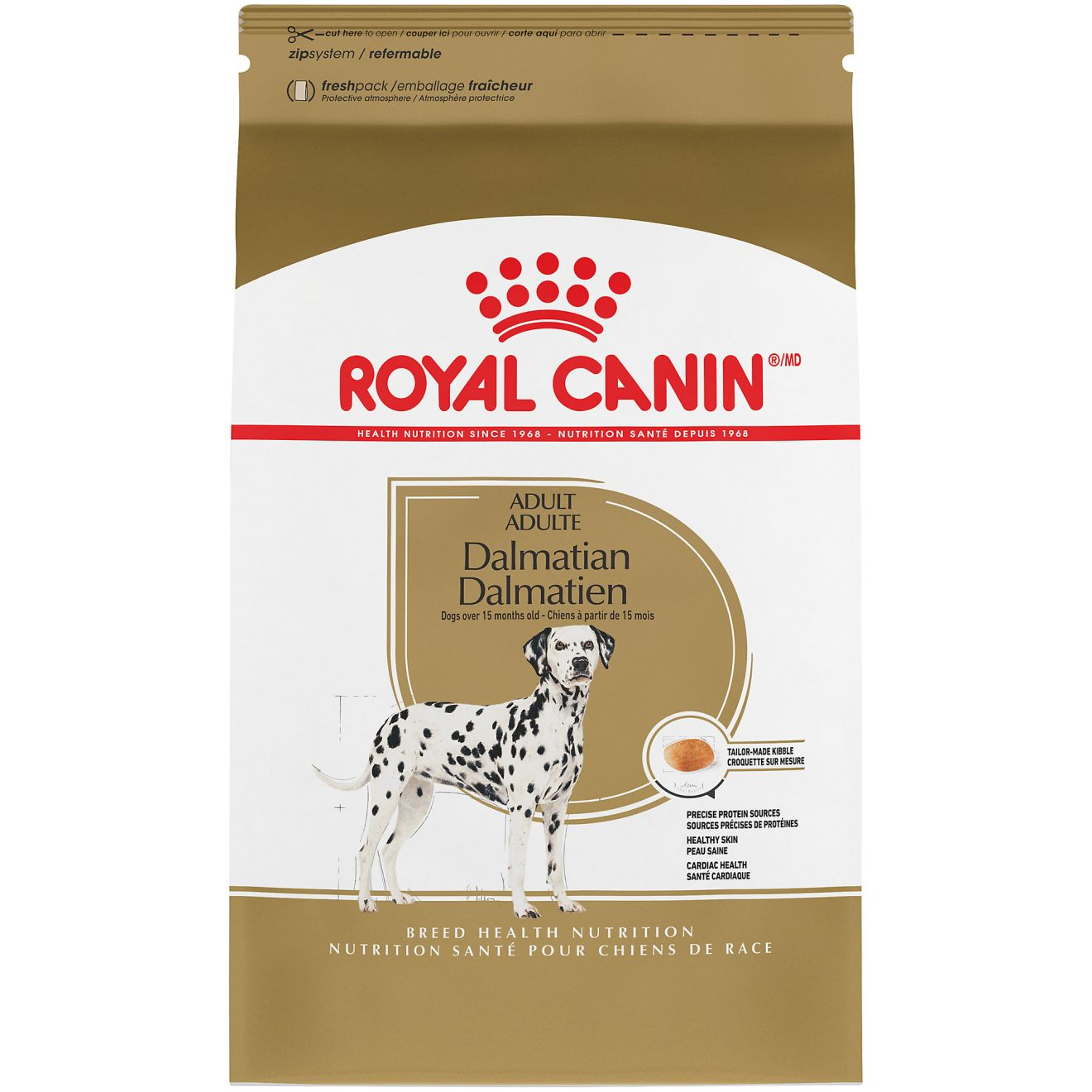Did you know that Dalmatians have a unique dietary requirement compared to other dog breeds? Unlike most dogs, Dalmatians have a predisposition to developing urinary stones, specifically bladder stones made of urate. This condition is due to their inability to metabolize purines found in certain foods like grains. As a result, it is important to consider feeding Dalmatians a grain-free diet to help prevent urinary stone formation and promote their overall health.
Dalmatians, known for their distinctive spotted coat, have a genetic deficiency that affects their ability to digest purines, a compound found in grains. This deficiency leads to a buildup of uric acid, which can form into urate stones in their bladder, causing pain and discomfort. Grain-free food options can be beneficial for Dalmatians as they are lower in purines, reducing the risk of urinary stone formation. By choosing a grain-free diet tailored to their unique nutritional needs, Dalmatians can enjoy a healthier and happier life without the risk of urinary stone complications.

Do Dalmatians Need Grain-Free Food?
When it comes to feeding our furry friends, there are certain dietary considerations we should keep in mind. Dalmatians, known for their distinctive spots and energetic personalities, have unique dietary needs compared to other dog breeds. One question that often arises is whether Dalmatians need grain-free food. In this article, we will explore the reasons behind this question and provide detailed information to help you make an informed decision regarding your Dalmatian’s diet.
Why Grain-Free Food May Be Beneficial for Dalmatians
Dogs are typically omnivorous, and their bodies can digest and derive nutrients from a wide range of food sources. However, certain breeds, including Dalmatians, are more prone to specific health conditions that can be influenced by their diet. One such condition is urinary tract problems, particularly the formation of urinary stones.
Dalmatians have a genetic predisposition to developing urinary stones due to their unique urine composition. These stones are primarily composed of urate crystals, which can be exacerbated by certain foods. While the direct link between grains and urinary stones in Dalmatians is not fully understood, some experts believe that reducing or eliminating grains from their diet can help minimize the risk of stone formation.
Additionally, Dalmatians can be prone to food allergies or sensitivities, and grains, particularly wheat and corn, are common culprits. Switching to a grain-free diet may help alleviate any potential digestive issues or skin irritations caused by these sensitivities.
The Importance of a Balanced Diet for Dalmatians
While the potential benefits of a grain-free diet for Dalmatians are worth considering, it’s crucial to emphasize the overall importance of a balanced diet. Regardless of whether you choose to feed your Dalmatian grain-free food or not, their meals should still provide all the necessary nutrients for optimal health.
Protein is a vital component of a Dalmatian’s diet, as it helps support muscle development and repair. Look for high-quality animal-based proteins, such as chicken or fish, when selecting their food. Essential fatty acids, like omega-3 and omega-6, are also crucial for maintaining healthy skin and coat. Ensure that their diet includes a source of these fatty acids, such as fish oil or flaxseed oil.
Finally, carbohydrates should not be completely eliminated from a Dalmatian’s diet. While grains can be a source of carbohydrates, other options like sweet potatoes or peas can also provide the necessary energy. Remember to consult with your veterinarian to determine the right balance of macronutrients for your specific Dalmatian.
The Pros and Cons of Grain-Free Food for Dalmatians
1. Pros:
- Reduces the risk of urinary stone formation in Dalmatians
- May alleviate food allergies or sensitivities
- Can improve the overall quality of the coat and skin
- Eliminates potential fillers and artificial additives in some commercial pet foods
2. Cons:
- Grain-free options may be more expensive than traditional dog food
- Not all grain-free foods are created equal, so careful selection is necessary
- Eliminating grains completely may result in a lack of certain nutrients
- Limited research on the long-term effects of grain-free diets for dogs
Tips for Choosing and Transitioning to Grain-Free Food
1. Consult with your veterinarian: Before making any dietary changes, it’s crucial to consult with your veterinarian. They can assess your Dalmatian’s specific health needs and provide tailored recommendations.
2. Read the ingredient list: Look for grain-free dog food options that prioritize high-quality proteins and nutrient-rich ingredients like sweet potatoes or peas. Avoid products that contain fillers, artificial additives, or excessive amounts of carbohydrates.
3. Transition gradually: When introducing new food, it’s important to transition gradually to minimize digestive upset. Gradually mix the new grain-free food with your Dalmatian’s current food over the course of several days.
Choosing the Right Diet for Your Dalmatian
When it comes to choosing the right diet for your Dalmatian, there is no one-size-fits-all approach. While some Dalmatians may thrive on a grain-free diet, others may do equally well on high-quality dog food that includes grains. The key is to pay attention to your Dalmatian’s unique needs, monitor their health, and work closely with your veterinarian to ensure they are receiving a balanced and nutritious diet.
Conclusion
Understanding the specific dietary needs of Dalmatians is essential for their overall health and well-being. While grain-free food may offer certain benefits for Dalmatians, it is not a requirement for all dogs of this breed. The decision to feed a grain-free diet should be made on an individual basis, taking into consideration the dog’s health, potential allergies, and urinary tract concerns. Consultation with a veterinarian is crucial to make an informed decision and to ensure that your Dalmatian receives the best possible diet tailored to their specific needs.
Key Takeaways: Do Dalmatians Need Grain-Free Food?
- While dalmatians have specific dietary needs, grain-free food may not be necessary for all of them.
- Consulting with a veterinarian is crucial to determine the best diet for your dalmatian.
- Dalmatians are prone to urinary issues, and a diet low in purines is recommended.
- High-quality dog food with balanced nutrients is essential for the overall health of your dalmatian.
- It’s important to consider your dalmatian’s individual needs and consult with a professional to make an informed decision.
Frequently Asked Questions
When it comes to feeding your dalmatian, you may be wondering whether a grain-free diet is necessary. Here are some commonly asked questions about dalmatian nutrition.
1. Are dalmatians prone to food allergies?
Dalmatians are not particularly prone to food allergies compared to other dog breeds. However, some individual dalmatians may develop allergies to specific ingredients, including grains.
If your dalmatian shows signs of an allergic reaction, such as itchy skin, gastrointestinal issues, or chronic ear infections, consider consulting with your veterinarian to determine if a grain-free diet would be beneficial for your pet.
2. Do dalmatians require a grain-free diet for their unique health needs?
While dalmatians have unique nutritional requirements due to their predisposition to urinary conditions, there is no specific need for them to consume a grain-free diet. However, some dalmatian owners choose to feed their pets grain-free food as a precautionary measure.
It’s essential to understand that the most critical aspect of a dalmatian’s diet is the proper balance of minerals to prevent urinary stone formation. Consult with your veterinarian to determine the best diet plan for your dalmatian’s specific needs.
3. Can a grain-free diet improve the health of dalmatians with urinary issues?
A grain-free diet alone may not necessarily improve the health of dalmatians with urinary issues. The focus should be on providing a nutritionally balanced diet that helps manage the pH levels of the urine and control the formation of urinary stones.
Working closely with your veterinarian is crucial in formulating an appropriate diet plan that includes the right balance of minerals and other essential nutrients to support urinary health in dalmatians.
4. Are there any potential risks associated with feeding dalmatians a grain-free diet?
Feeding dalmatians a grain-free diet may not pose any risks if the diet is well-balanced and meets their nutritional needs. However, it’s important to be cautious of the potential inclusion of other ingredients that may cause an allergic reaction or nutrient deficiencies.
Always read the ingredient labels carefully and consult with your veterinarian before making any changes to your dalmatian’s diet to ensure it is appropriate for their specific needs.
5. What are some alternative dietary options for dalmatians if not on a grain-free diet?
If you choose not to feed your dalmatian a grain-free diet, there are alternative dietary options available. Prescription diets formulated for dalmatians or diets designed specifically for urinary health may be suitable choices.
These specialized diets typically focus on controlling mineral levels, increasing water intake, and maintaining the right pH balance in the urine to reduce the risk of urinary stone formation, which is crucial for dalmatians’ health.
Summary
Dalmatians can eat both grain-free and regular dog food, but it’s essential to consider their specific needs. While grain-free food might be suitable for some dogs, Dalmatians usually require a special diet. Dalmatians have a higher risk of developing urinary stones due to their unique metabolism, and a diet low in purines can help prevent this condition. Therefore, it’s crucial to consult with a veterinarian before deciding what type of food to feed your Dalmatian.
Additionally, Dalmatians have specific dietary requirements to ensure their overall health and well-being. They need a balanced diet with appropriate levels of protein, fat, and essential nutrients. Regular exercise and proper portion control are also vital to maintain a healthy weight for these active dogs. By keeping these factors in mind and working with a veterinarian, you can ensure that your Dalmatian receives the right nutrition for a long, happy, and healthy life.

